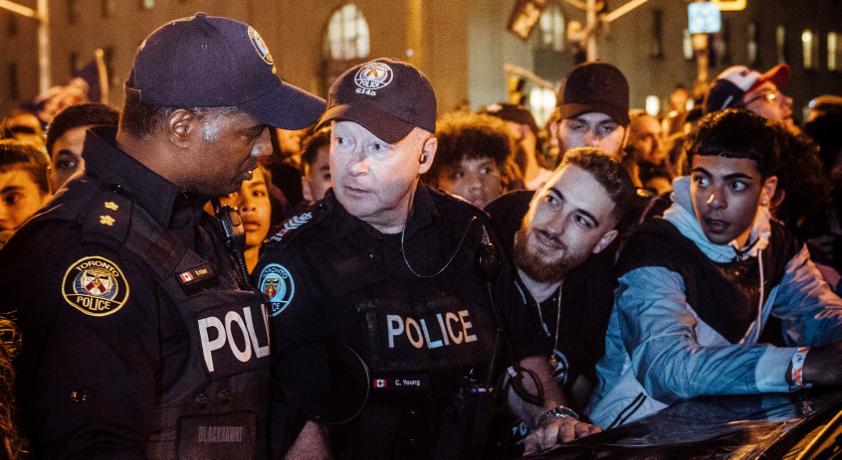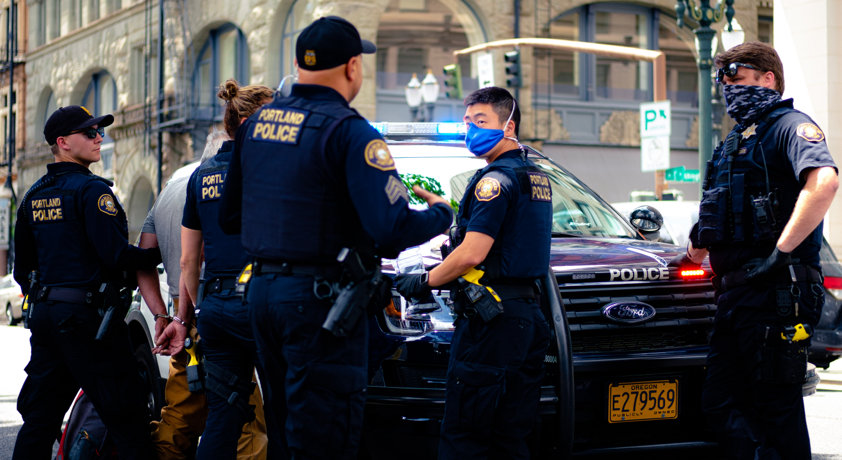Last Updated: 26 May, 2023

Criminal Justice Degree
A criminal justice degree provides a broad overview of the theoretical and practical aspects of the criminal justice system. Courses examine the foundations of the American criminal justice system, including its history, structure, and operation, and the way various agencies at the local, state, and federal levels interact with each other.
What Is a Criminal Justice Degree?
Criminal justice is an interdisciplinary field of study that examines the American criminal justice system, the origins and causes of crime, methods for preventing and reducing criminal activity, and how social, economic, and political factors influence responses to crime. Students learn how the justice system works at the local, state, and federal levels and develop their own ideas on the effectiveness of various criminal justice interventions.
The curriculum may include constitutional law, criminology, criminal procedure, forensic science, juvenile justice, and victimology. The objective of this type of education is to equip students with a comprehensive understanding of the criminal justice system so that they are prepared to enter the real world as knowledgeable, responsible professionals who can make a positive impact in their communities.
Criminal Justice Degree Options
Students can pursue a number of different degrees in the field of criminal justice at both the undergraduate and graduate levels. The most popular degree in this area is the Bachelor of Science in Criminal Justice, which typically takes four years to complete. The Associate of Arts in Criminal Justice and the Associate of Science in Criminal Justice are additional undergraduate degree options at the college level. These two degrees can both be completed in two years.
Graduate students studying criminal justice most frequently acquire the Master of Science in Criminal Justice and the Doctor of Philosophy in Criminal Justice degrees (Ph.D.). Depending on the curriculum, completing one of these degrees typically requires two to four years of study.
Associate Degree in Criminal Justice
An associate degree in criminal justice is a two-year, introductory to intermediate-level degree. This is the best degree option for students who wish to create a fundamental foundation in the discipline that will put them on the fast track to employment. An associate degree program’s coursework often covers courses relevant to entry-level roles in law enforcement, corrections, and security, such as criminal law, the sociology of crime, and the fundamentals of police procedure.
Bachelor’s Degree in Criminal Justice
A bachelor of criminal justice program is an undergraduate degree program that provides students with a strong foundation in the principles and practices of the criminal justice system. The program typically covers a wide range of topics, including law enforcement, criminology, forensic science, and the legal system.
Students in a bachelor of criminal justice program will learn about the various agencies and organizations that make up the criminal justice system, including police departments, courts, and correctional facilities. They will also study the theories and research that inform our understanding of crime and criminal behavior and will learn about the policies and procedures that govern the criminal justice system.
Master’s Degree in Criminal Justice
If your primary goal is to pursue a leadership position in criminal justice or an advanced position with the federal government, you must earn a master’s in criminal justice. Job titles such as Chief of Police, FBI agent, CIA agent, and any government position at the GS-9 level or higher require a master’s degree.
A master’s degree not only qualifies you for these high-level positions, but also allows you to specialize in a particular field of criminal justice, such as forensic science, homeland security, criminal justice policy, criminology, or correctional leadership, which can open doors to a variety of long-term career opportunities.
Ph.D. in Criminal Justice
A Ph.D. in criminal justice is the highest level of degree one can earn in the field. It is typically pursued by individuals who are seeking high-level careers in academia, public policy, law, organizational leadership, private or governmental research agencies, or anyone whose ultimate goal is to climb the ladder within the federal government to GS-12 or higher.
Earning a Ph.D. carries a substantial amount of weight with employers and demonstrates a significant commitment to your professional goals. The objective of a doctoral program is to elevate your already strong understanding of crime and the criminal justice system and to train you to conduct your own original research.
Online Criminal Justice Degree
If you want to study criminal justice but are unable to attend a university with brick-and-mortar classrooms, consider getting your degree online. When compared to traditional on-campus programs, online options provide an equally rigorous and high-quality education, with the extra benefit of allowing students to work at their own speed and on their own time.
Students enrolled in an online program can expect to acquire the same base of information and abilities as those who choose to complete their education in a more conventional setting. Given the dynamic nature of criminal justice, online degree programs are built to accommodate students’ needs as they learn about the most recent innovations in the area. Further, similar to on-campus programs, most online programs provide internships with local law enforcement organizations where students can obtain practical experience.
Benefits of a Criminal Justice Degree
Earning a college degree is all about preparing you, both intellectually and socially, for your career and about opening up opportunities that would not be available through job experience alone. In the field of criminal justice, research clearly indicates that the most consistently successful – and safest – officers are those who have pursued higher education at some point in their careers.
The benefits of earning a college degree in criminal justice are many. A college education will:
- Give you a better understanding of the criminal justice system and how it works
- Help you develop critical thinking and analytical skills
- Improve your written and oral communication skills
- Improve self-control, reduce impulsivity, and reduce the use of force
- Create greater promotional opportunities
- Lead to higher earnings over the course of your career
- Result in higher levels of happiness and stability
Criminal Justice Degree Jobs
The answer to the question of what you can accomplish with a criminal justice degree is practically anything. Earning a degree in criminal justice will provide you with knowledge and skills that are transferable to a variety of careers both inside and outside the criminal justice system.
Graduates in criminal justice are frequently employed as police officers, police detectives, federal agents, probation officers, correctional officers, and parole officers, to name a few. Graduates in criminal justice, however, have a wide range of other job opportunities, including working as a security guard, loss prevention specialist, or private investigator in the private sector.
Graduates in criminal justice may choose to work in social work, victim advocacy, or community service. Graduates interested in the legal field may decide to work as paralegals or legal assistants. Additionally, students who enjoy doing research could find work as policy advisors or crime analysts. The following are descriptions of the most popular criminal justice careers:
Police Officer
Police officers are responsible for enforcing the law and maintaining public safety. They patrol their assigned beats, respond to 911 calls, investigate crimes, make arrests, and write reports. They may also testify in court as witnesses. Most police officers are employed by local police departments, but some work for state or federal agencies. Some police officers specialize in specific areas, such as undercover work, K-9 units, or mounted patrols.
Police Detective
Police detectives are responsible for investigating crimes. They gather evidence, interview witnesses and suspects, and write reports. They may also testify in court as witnesses. Detectives are typically assigned to specific cases or types of cases, such as homicide, fraud, or robbery. Some detectives specialize in specific areas, such as forensics or computer crimes.
Probation Officer
People who have been convicted of a crime and sentenced to probation are subject to close monitoring by probation authorities. They guarantee that convicted offenders are adhering to the terms of their probation, such as retaining employment, meeting with their probation officer, and engaging in counseling or treatment programs. In addition, probation officials provide guidance and assistance to offenders to support their effective reintegration into society and the community.
Correctional Officer
A correctional officer is a criminal justice professional who supervises the care, custody, and management of inmates in a prison or jail. Officers are responsible for preserving the facility’s safety and security, enforcing laws and regulations, and ensuring that convicts are treated with humanity and decency.
In addition to conducting security checks, patrolling the facility, and conducting contraband searches, correctional officers may also supervise and monitor inmate activities, such as labor assignments and recreational programs.
Loss Prevention Specialist
Loss prevention specialists are responsible for preventing and deterring theft in retail stores. They conduct investigations of suspected theft, write reports, and testify in court as witnesses. Loss prevention specialists may also be responsible for training store employees in loss prevention procedures and conducting audits of store security systems.




